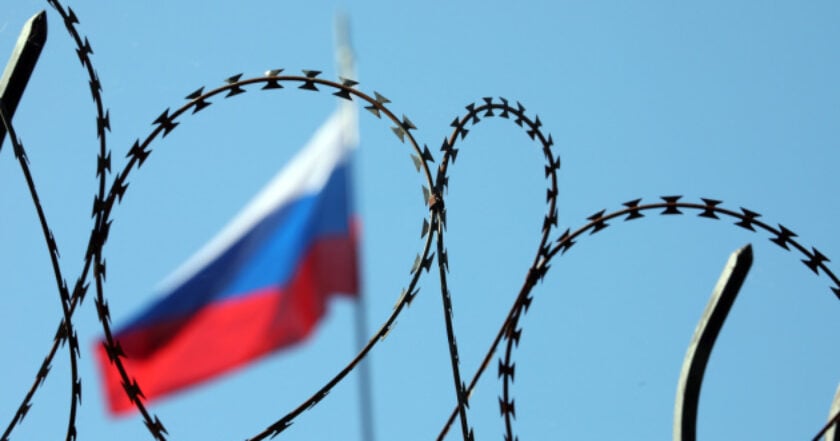EU Council imposes 14th round of sanctions on Russia

The EU Council has passed the 14th round of economic and individual sanctions against the Russian Federation in response to its full-scale invasion of Ukraine.
The European Council's press service reported that.
The goals of these measures are:
- to target significant sectors of the Russian economy, specifically energy, finance, and trade;
- to increase the challenge of finding ways to bypass EU sanctions.
Today's package includes restrictive measures against another 116 individuals and legal entities responsible for actions that undermine or threaten Ukraine's territorial integrity, sovereignty, and independence.
Expressly, the EU Council has prohibited the transfer of Russian LNG within the EU for transportation to other countries. This rule applies to both transfers between ships and transfers from boats to shore. However, the ban does not affect the import of LNG directly into the EU.
Furthermore, there are restrictions on providing goods, technologies, and services for new LNG projects in Russia, such as Arctic LNG 2 and Murmansk LNG.
The Council of the EU also approved introducing restrictions on importing Russian LNG through EU terminals that are not connected to the gas system.
To make it harder for sanctions to be bypassed and to deter Russia from engaging in military actions in Ukraine, the EU will require companies to take responsibility for the actions of their subsidiaries in other countries if those actions aid in bypassing sanctions.
The re-exportation of military equipment produced in the EU to Russia will also be limited.
Agreements on the transfer of technologies must contain a clause prohibiting their use to produce goods for Russia.
EU companies outside Russia are prohibited from connecting to the Russian alternative to SWIFT – the System for Transfer of Financial Messages (SFMS). Transactions with targeted credit and financial institutions and providers of crypto assets established outside the EU are also prohibited.
In response to Russia's interference in EU democratic processes, the Council decided to prohibit political parties, NGOs, think tanks, and media in the EU from receiving funding from the Russian state and its controlled structures.
This measure does not limit the work of journalists, such as conducting research and interviews.
For the first time, the EU introduced sanctions against specific vessels that contribute to Russian aggression in Ukraine. These vessels are prohibited from entering EU ports and receiving services.
Vessels are subject to sanctions for several reasons, such as:
- Transportation of military equipment for Russia;
- Transportation of stolen Ukrainian grain;
- Support for the development of the Russian energy sector (transportation of LNG, transshipment of LNG).
The sanctions also target Putin's "dark fleet," which circumvents EU and Coalition price cap restrictions by using deceptive shipping methods and ignoring international standards.
27 such vessels were sanctioned.
61 organizations supporting the Russian military industry, including those from other countries, have been placed on the sanctions list. The restrictions on exporting dual-use goods and those that contribute to strengthening the Russian defense sector have been intensified for them.
The list of prohibited goods has been expanded to include machine tools, all-terrain vehicles, chemicals, manganese ores, rare earth metals, plastics, earthmoving machines, monitors, and electrical equipment.
The regime's import of helium from Russia, which is an important source of income, is limited.
In addition, Liechtenstein was added to the list of partner countries that apply restrictive measures on the import of iron and steel from Russia, as well as import control measures that are essentially equivalent to EU measures.
The Council allows EU operators to seek compensation for damage caused by Russian companies through sanctions and expropriation. It also creates a tool for compiling a list of companies that are prohibited from transactions for interference with arbitration and judicial competence.
The Council of the EU recently supported a ban on submitting applications for certain intellectual property rights (such as patents, trademarks, and designs) in response to Russia's actions that limit the rights of EU intellectual property owners. Additionally, restrictions on the use of already registered rights were also approved.
In addition, the EU Council also supported the ban on the purchase, import, transfer, or export of cultural values from Ukraine if there is reason to believe that they were illegally exported.
For reference:
Since the beginning of Russia's full-scale aggression in Ukraine, the European Union has been steadily increasing the pressure of sanctions. 13 packages of sanctions have already dealt a tangible blow to the Russian economy and military potential.
The official agreement of EU ambassadors' 14th package of sanctions took place on June 20.






















































